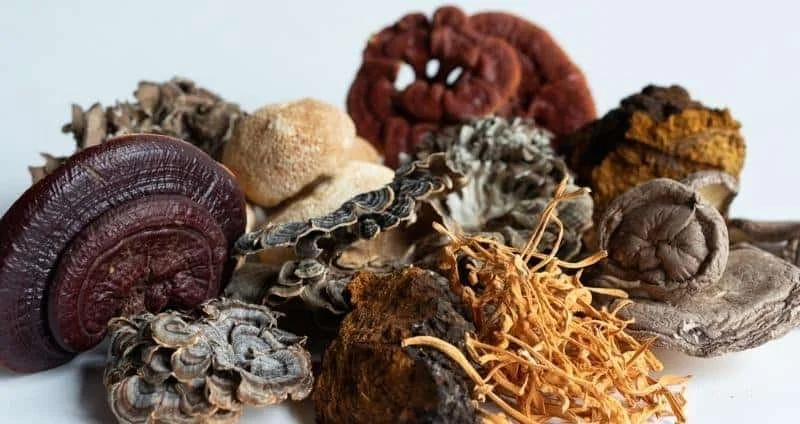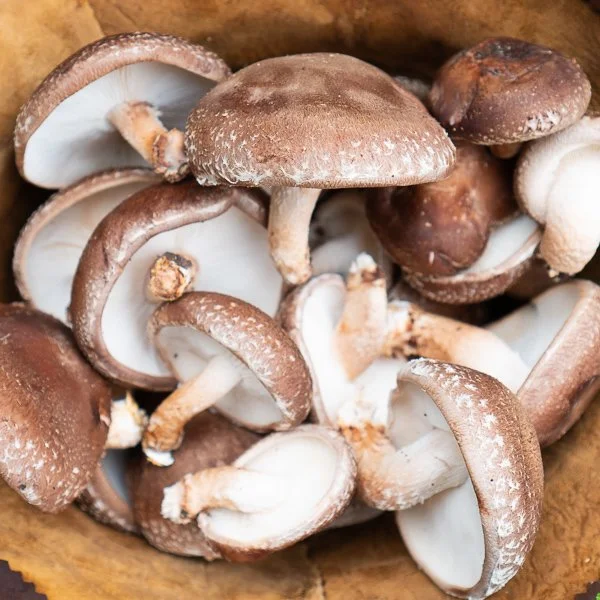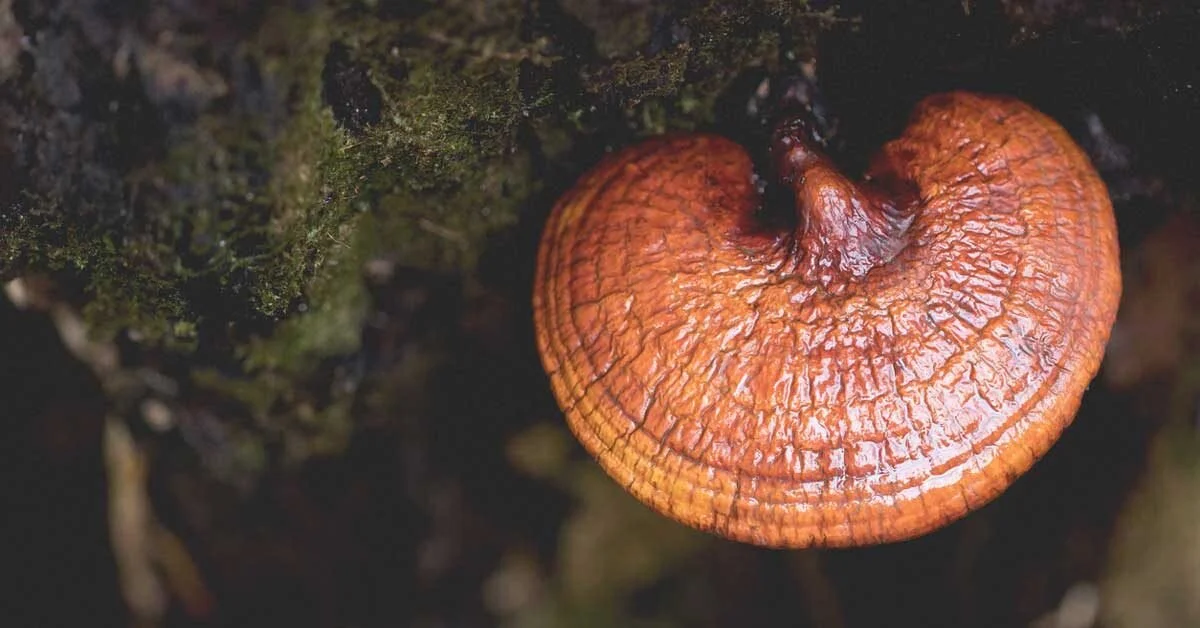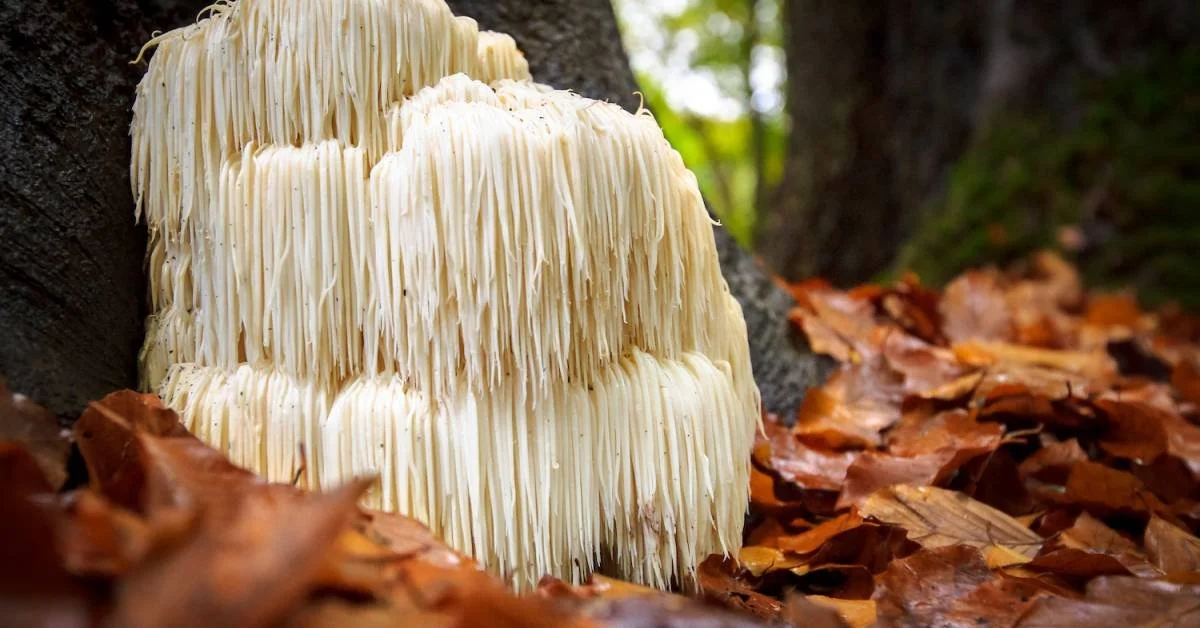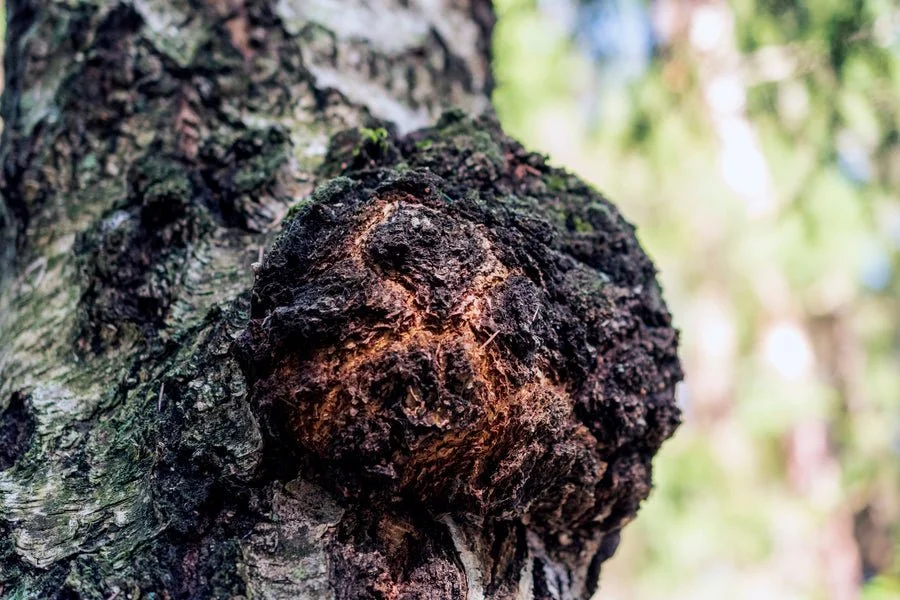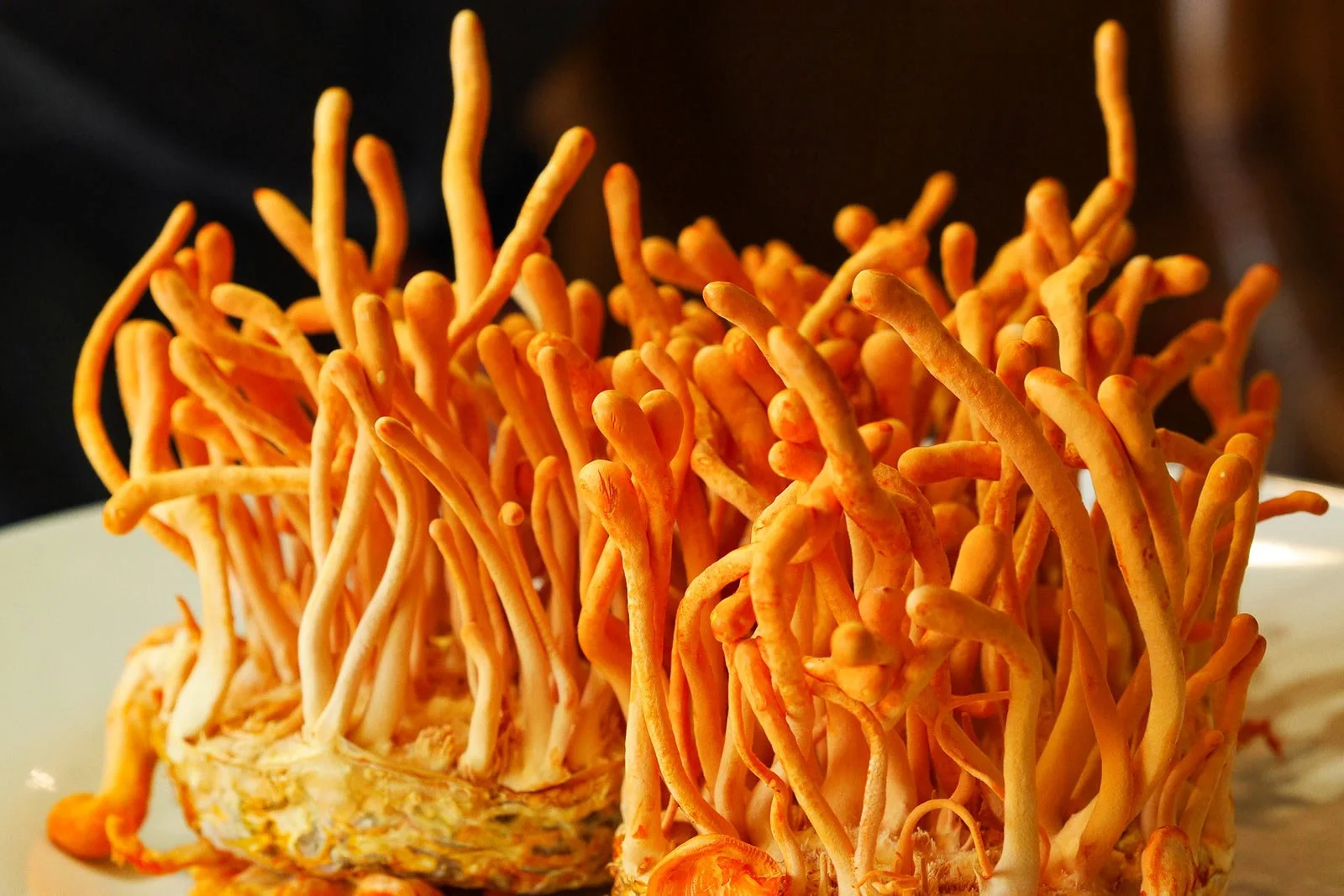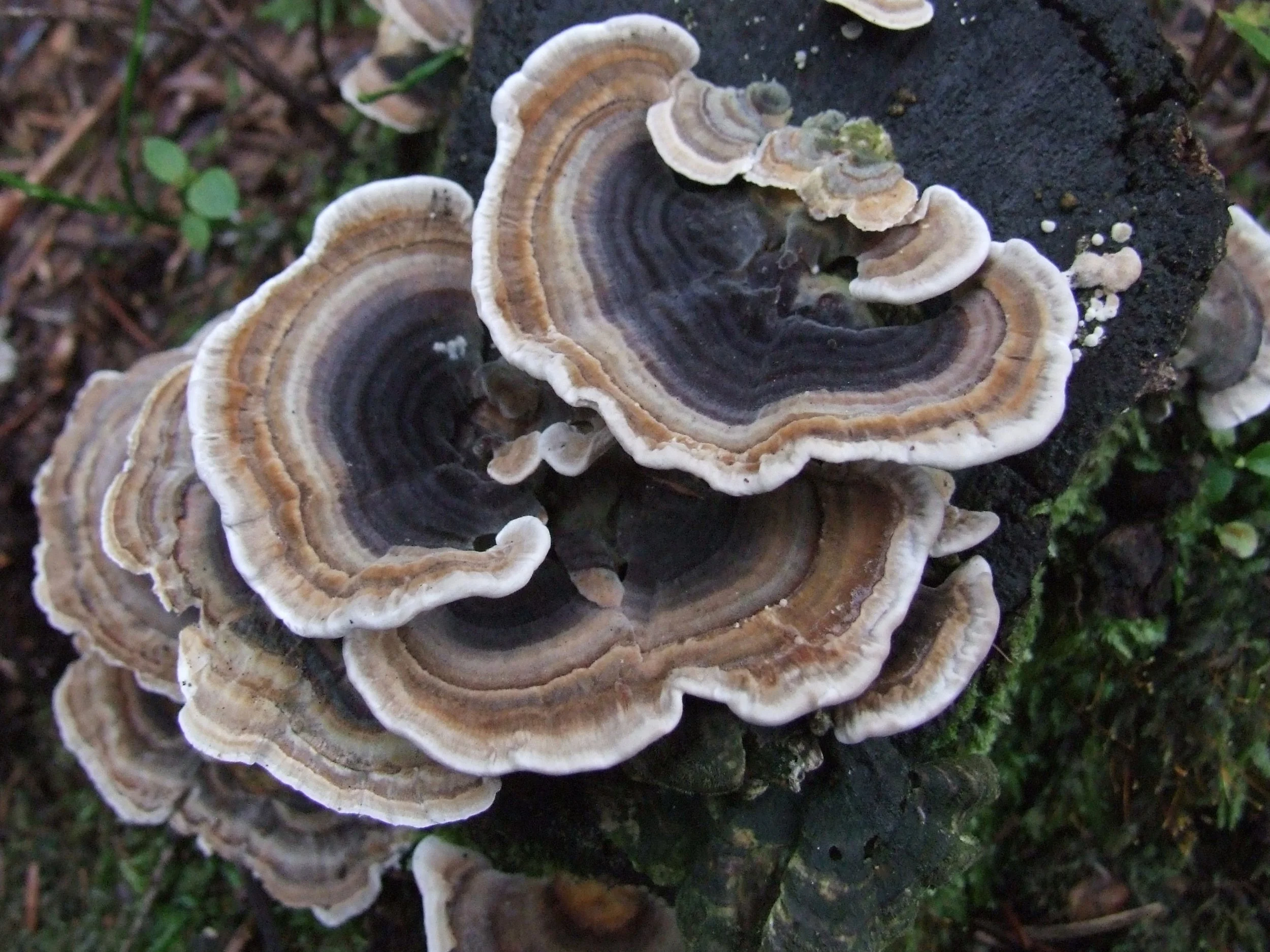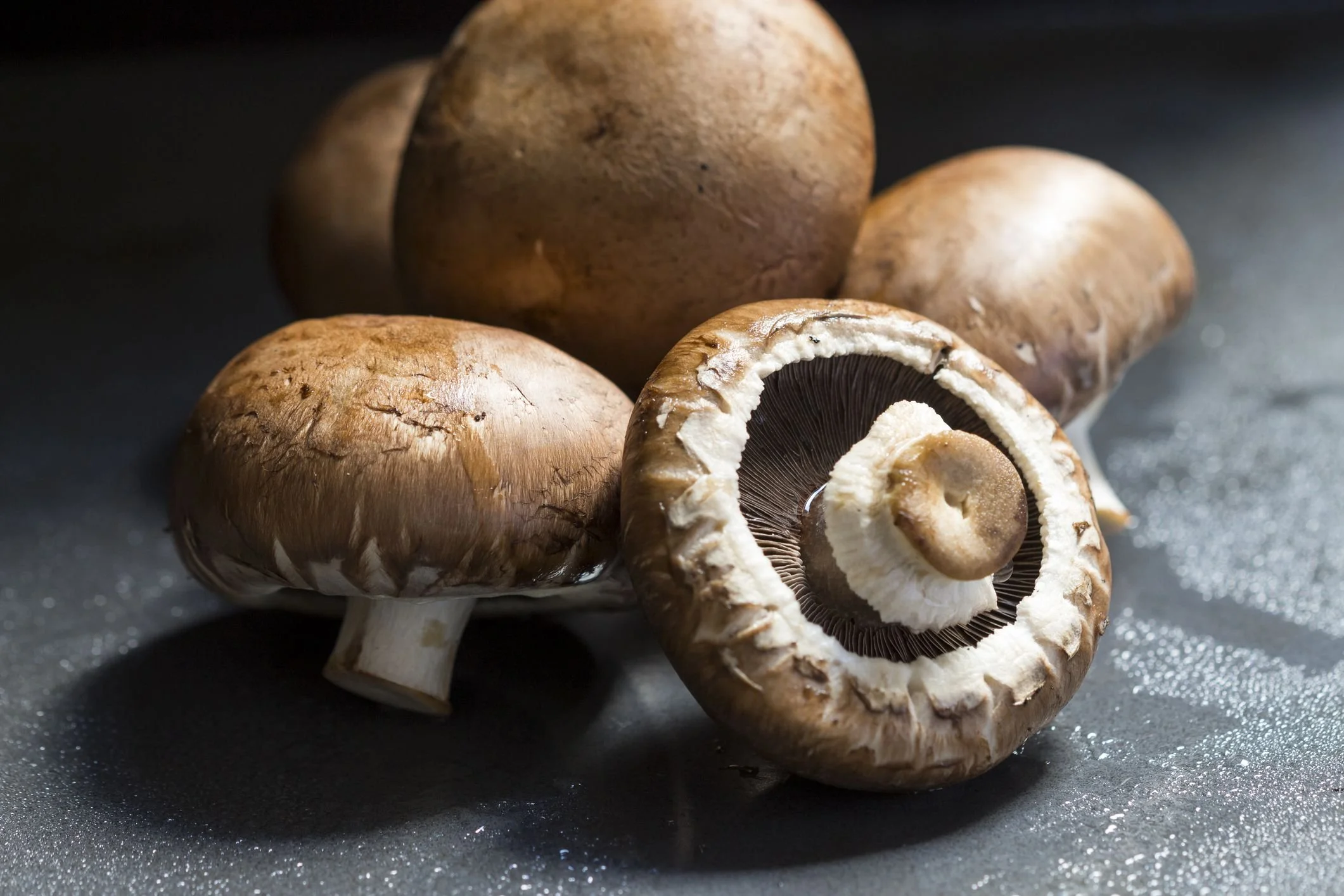Medicinal Mushrooms - Part 2
Medicinal Mushrooms - An Overview
The term “medicinal mushroom” is used for mushrooms that have a long history of traditional use (think thousands of years). These are a handful of varieties of mushrooms that have a super long history of use in Asia.
I’ve done my best to add the research for all facts and points in this section. But, if I’ve missed something, message me and I’ll track it down :).
Please note: All medicinal mushrooms are helpful for the immune system, so I’ll only add immune support to the section if it’s particularly noteworthy or if there are some good research :).
Shiitake
Let’s start with the mushroom that’s easy to find in most grocery stores in North America :). This mushroom has a delightful smokey flavour that’s delicious in many dishes (eggs, pasta, stews, etc).
There isn’t a lot of research happening on these mushrooms…probably because they’re mostly used in food instead of supplements. But, some research has found them helpful in reducing inflammation and may protect against cancer.
There are also come antibacterial/antiviral effects in shiitake mushrooms, and they can be a source of Vitamin D if grown in the sunshine.
Dosage: These mushrooms are usually used in food, so I wasn’t able to find an exact dosage. Instead, enjoy them! They’re delicious! And always cook them (always cook all mushrooms, they’re not to be eaten raw).
Research:
Reishi
Known as the “Imperial Tonic” in Traditional Chinese Medicine, Reishi mushroom supports all body systems. It’s grown in hot climates throughout Asia. There’s also some interesting research regarding how they can help to balance the immune cells that are connected to autoimmune conditions.
Reishi is best known for supporting the cardiovascular system, including helping to keep blood pressure and triglycerides in a healthy range. But, there’s research proving this and disproving this…so take that with a grain of salt.
It’s also a potent immune modulator and can be helpful for seasonal allergies as well. Some research shows that reishi may help stimulate immune cells called Natural Killer Cells in late-stage cancer treatment (they help fight cancer cells).
Dosage: 1500 – 9000mg per day
Research:
https://pubmed.ncbi.nlm.nih.gov/16230843/
https://pubmed.ncbi.nlm.nih.gov/12916709/
Lion’s Mane
This mushroom, which literally looks like a big, white, lion’s mane, is great for brain health. It’s a culinary staple in China, India, Japan, and Korea…and it’s really blowing up on TikTok lately :).
The thing to remember about lion’s mane mushroom is that it helps the brain. Early research has found that it supports two compounds that help grow brain cells: hericenones and erinacines. Early research on humans has found that it can reverse early dementia symptoms…but the symptoms will come back after they stopped taking it.
Some animal studies have found that lion’s mane reduces anxiety and depression symptoms, and one small human study found that eating a cookie containing lion’s mane every day for 4 weeks reduced irritation and anxiety in post-menopausal women.
It may also help repair damage to the nervous system, although more research is needed. Paul Stamets has a nervous system healing “recipe” that’s very interesting and might have some potential. If you’d like to know more about it, email me and I’ll give you the recipe and tell you about my experience with it :).
A personal note from Lisa: this is a mushroom that I take regularly, and I did notice better focus and concentration when I first started taking it. I ran out a few weeks ago…and struggled to remember how to spell “awning” yesterday. Might need to grab some more lion’s mane soon :).
Dosage: Most supplements are 500mg – 750mg. The dementia research subjects took 250mg 3x per day.
Research:
https://pubmed.ncbi.nlm.nih.gov/24266378/
https://pubmed.ncbi.nlm.nih.gov/18844328/
Chaga
These are ugly-looking growths found on the side of trees throughout the Western Hemisphere, including very cold regions like Siberia. They may be ugly, but they’re really helpful! They’re growing in popularity and you’ll find them added to a lot of blends at the health food store. But, the research on this mushroom is still emerging…a.k.a. there’s not much yet.
Chaga helps to heal epithelial cells. These are the cells that line any area in the body that touches the outside world, like the skin, intestinal tract, and respiratory tract. It’s also a good prebiotic fibre to feed good bacteria in the gut.
Early research in mice has also found that chaga reduces the dreaded cytokine storm that can trigger mega inflammation (we heard a lot about cytokine storms at the beginning of the pandemic)
Dosage: Approx 1000mg (but more research is needed)
Research:
https://www.ncbi.nlm.nih.gov/pmc/articles/PMC3774877/
Cordyceps
In humans, cordyceps help to increase energy and oxygen utilization. Sherpas have used cordyceps traditionally to help with elevation. They also are a surprising non-toxic ant-killer.
Cordyceps can help with cardio training, energy, vitality, and low sex drive. I’ve found they give a nice energy boost that feels more balanced than caffeine.
Dosage: 1000mg
Research:
Turkey Tail
I’m pretty sure there’s turkey tail growing in the forest beside me. I’m pretty darn sure (but not quite sure enough to try them out…what if I’m wrong 🤢).
Turkey Tail is all about the immune system! It’s used alongside cancer treatments, like surgery, chemo, and radiation in Japan and China.
Research is also beginning to find that it may have anti-tumour properties. In a test-tube study, turkey tail was found to inhibit colon cancer cells. And in a mouse study as well as a study on dogs, turkey tail was found to reduce tumour size.
Turkey tail may also help to clear HPV out of the body with decent success (88% vs 5% in the control group). It also may help to reduce insulin resistance.
https://pubmed.ncbi.nlm.nih.gov/28595034/
https://www.ncbi.nlm.nih.gov/pmc/articles/PMC3503532/
https://www.ncbi.nlm.nih.gov/pmc/articles/PMC5298263/
https://www.ncbi.nlm.nih.gov/pmc/articles/PMC3440946/
What about button, cremini, and portabella mushrooms?
Let’s start with portobello and cremini mushrooms. Cremini are baby portabellas. Portabella mushrooms are high in a compound called agaritines, which is toxic. They’re safe to eat IF you cook them at a very high temperature. The jury is still out if the problems with these compounds outweigh any good stuff in these mushrooms, so this is why they’re not in the ‘medicinal’ category.
White button mushrooms may have many medicinal properties, including reducing prostate cancer and when exposed to sunlight they can produce large amounts of Vitamin D. But, how mushrooms are grown is really important. All mushrooms clean up the environment, so if they’re grown in anything less than a pristine environment, then they can pick up some nasty compounds. There may be nothing wrong with store-bought button mushrooms, but it’s hard to know where they were grown (Canada? US? China?) and therefore they might not be as clean as you’d like them to be.
Research on button mushrooms:
https://www.endocrine.org/news-and-advocacy/news-room/featured-science-from-endo-2021/white-button-mushrooms-could-slow-progression-of-prostate-cancer
So, in a nutshell, it’s probably safe to enjoy these grocery store mushrooms but ONLY IF YOU COOK THEM. Take them out of your salad, all mushrooms must be cooked.
In Conclusion:
Medicinal mushrooms work within the body, they don’t force it to do anything. This is why they’ve become my favourite go-to over the last few years. If the immune system needs boosting, they boost it. If it needs to be calmed down, then mushrooms calm it down.
Got any questions or comments? Comment below, jump to our private Facebook Group, or the Ask Lisa page :).

